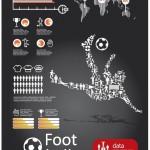 (This is a guest post by Rana Akkaya)
(This is a guest post by Rana Akkaya)
Sports sponsorship and event hospitality is a great platform to build business-impacting relationships through shared out-of-office experiences. Companies need to be confident that the dollars invested in sponsorships are being spent effectively and that every asset received is being maximized. As a result, Sponsorship ROI (Return of Investment) has a renewed focus to protect companies to justify the expense.
Here are three keys to increase the ROI from your sponsorship ticket and hospitality assets:
1. Reduce ticket and hospitality waste.
Do you know which tickets and hospitality were used and not used from your 2009 and 2010 sponsorships? For many sponsors, it is typical to have 20% of tickets go unused and wasted*.
Ask yourself the following questions:
- Are all tickets and hospitality seats being used? If not, why not?
- How many employees or business units utilized these assets?
- Did some business units use more than their “share” of these assets, or did others not participate at all?
- Who used each and every ticket? For each, was that person a customer, a prospect or an employee?
These questions must be answered, not only for internal ROI review, but for internal audit and even for the IRS. How each ticket is used, who used it, what facility the event was held in, and even the level of ticket affects IRS reporting requirements.
2. Ensure assets are being used for the best business purpose.
 If the primary objective of a sponsorship investment is business to business relationship building, then without fail, tickets and hospitality should be used by valued customers, prospects and appropriate hosts from your company. Your company must have processes and controls to ensure that tickets and hospitality benefits further your business and were not simply given away just to ‘fill the seats’.
If the primary objective of a sponsorship investment is business to business relationship building, then without fail, tickets and hospitality should be used by valued customers, prospects and appropriate hosts from your company. Your company must have processes and controls to ensure that tickets and hospitality benefits further your business and were not simply given away just to ‘fill the seats’.
The best practice is to internally publicize these assets so that more requests than tickets are collected and then evaluation and allocation can be done based on the best business purpose. Consistent collection of the necessary justification for each ticket request is critical to this process. Lastly, post-event data must be collected to evaluate business changes and value against the business objectives from having that customer or prospect on site. Aggregate reporting on this data will also provide the basis for intelligent renewal decision making.
3. Reduce the costs of handling tickets and fulfilling hospitality.
Streamlining ticket management and hospitality fulfillment provides greater control, improved efficiency and cost savings, therefore again increased ROI. A single, consistent process for publicizing assets, accepting requests, evaluating and allocating assets and reporting on usage and ROI is the key starting point.
Ensuring your hospitality event invitation, registration and guest data management process is clear, collaborative and efficient is next. Can appropriate employees easily submit requests with business justification and receive communications about allocation decisions and distribution? Does all event hospitality staff have access to real-time guest data at any time and location that they need it?
Then put yourself in the shoes of your guests, do you see impressive, brand-consistent invitations and communications? Is the event website informative and compelling? Is it easy to register? Was I consistently thanked for my participation and asked for feedback on improving the guest experience?
Sponsorship marketing is a significant investment. Deciding to deploy this tactic is only step one; effective activation that ensures maximum return on the investment is the key to success.
*PricewaterhouseCoopers published a study in 2009 that pointed to entertainment assets (tickets, passes, suites, etc.) as the single greatest ROI increase opportunity of the asset categories it reviewed, finding a 15-25% increase available on average.
###
 My name is Rana Akkaya and I work for an IT company called Sports Systems out of Fort Lee, NJ. Agencies including Octagon, Elevation, IMG, GMR and Velocity/Team Epic, and companies such as AT&T, Visa, UPS, Allstate, Motorola, MillerCoors, Shell Oil and Intel rely on Sports Systems for proven systems that simplify and streamline ticket and hospitality data management. I am also an undergraduate student pursuing my degree in Marketing.
My name is Rana Akkaya and I work for an IT company called Sports Systems out of Fort Lee, NJ. Agencies including Octagon, Elevation, IMG, GMR and Velocity/Team Epic, and companies such as AT&T, Visa, UPS, Allstate, Motorola, MillerCoors, Shell Oil and Intel rely on Sports Systems for proven systems that simplify and streamline ticket and hospitality data management. I am also an undergraduate student pursuing my degree in Marketing.
Image by thenationalguard
Image by scazon




Imitation is the sincerest form of flattery as this post is lifted directly from one of Sports System’s competitors. They must be hurting.
AT&T does not use sports systems to manage tickets- leading to the assumption that few of these firms actually are customers. AT&T uses Virtual Box Office to manage tickets. Visa uses another provider… ask them both directly.
You’re assuming SS plagiarized someone else’s website? From what I can tell, they have had a pdf of that overview on their website since early 2010….
Managing tickets is a small component of Corporate Sports Sponsorship. Nowhere does it say that Sports Systems manages the tickets for AT&T and Visa. Sports Systems as a ‘ticket management’ firm would most likely be cost prohibitive as it is not their focus or where their value lies. It would be akin to having a Mercedes just to drive yourself to the mailbox at the end of your driveway.
SS provides Activation Management for Corporate Sponsored Sporting events and really is the only choice for large, multi-wave, multi-guest events designed to streamline event management (for event team) and improve guest experience which ties the events success to the sponsors brand. They do this through the following process:
TicketTracker- Ticket Request & Management
GuestSelect- Guest Nomination Review & Selection
GuestFirst- Guest Invitation and Registration Management
DigitalExtend- Digital Tools to extend the Guest Experience (mobile apps, high touch opportunities)
EventPost- Usage Data & Feedback Metrics for Audit Reporting and ROI Assessment
They have done projects with both VISA (Team 2012 Olympics London with RBC) as well as AT&T (NCAA FInalFour via Velocity) which are significantly more involved than ‘ticket management’.
Hope that clarifies things as it relates to the ROI discussion. Ticket Management is a small component of an overall ROI analysis.
As the CEO of Sports Systems, I can offer a bit of clarity. Our whitepapers and all marketing materials are original content, so if anything too similar is found, I’d like hear where. In terms of the brands mentioned, we have worked, or work currently, with all listed and despite SportsBizKing’s at least partially incorrect information, this includes AT&T for several years in support of one of its major sponsorships.
What’s up, yup this piece of writing is truly pleasant and I have learned lot of things from it on the
topic of blogging. thanks.